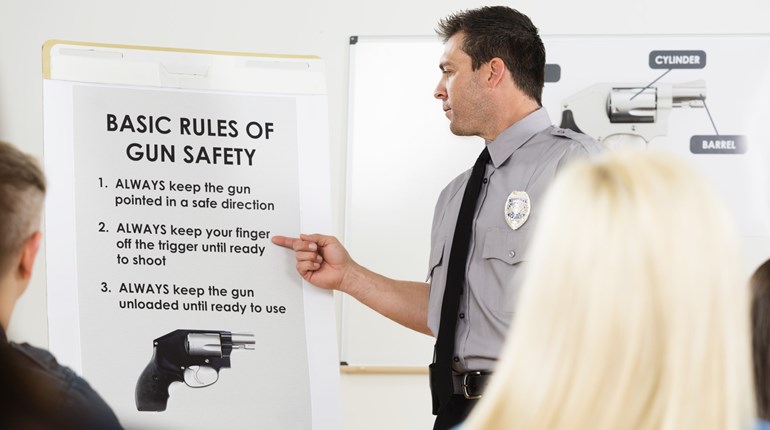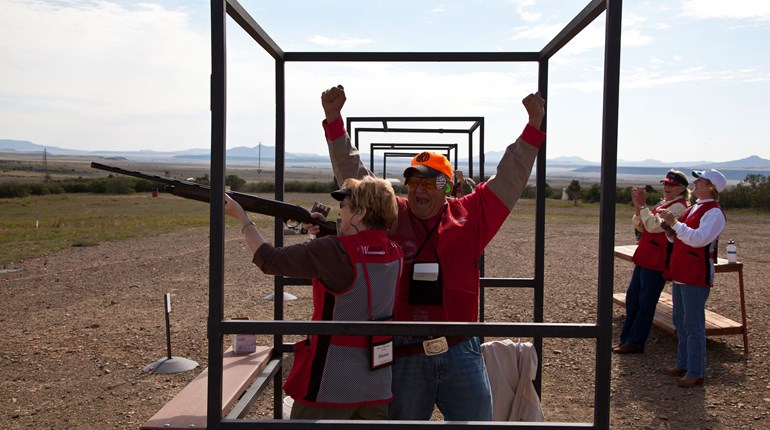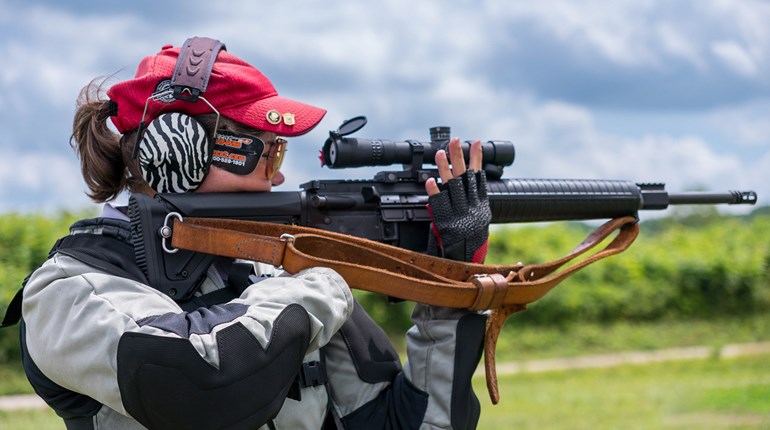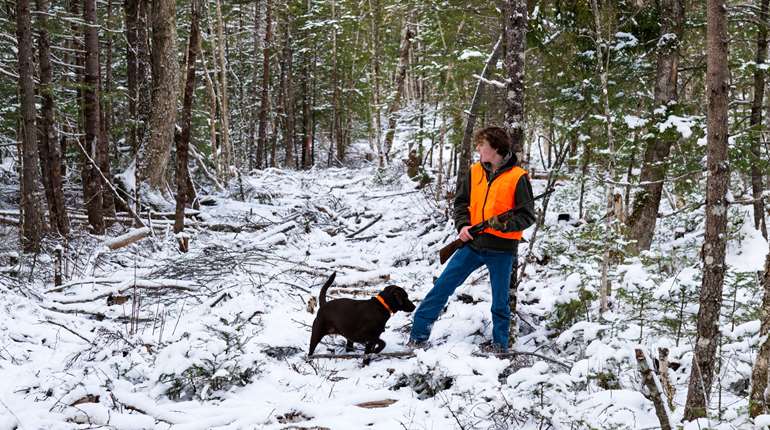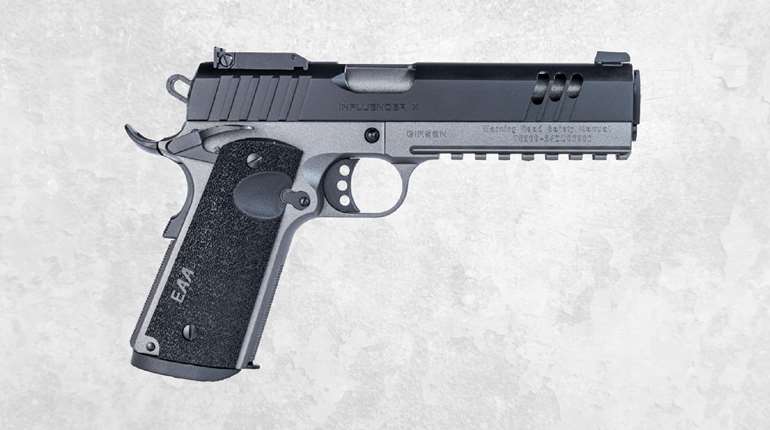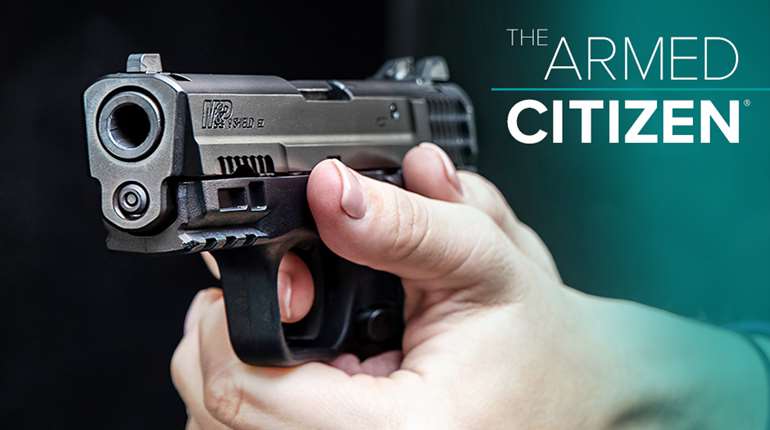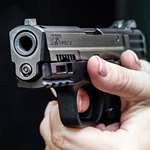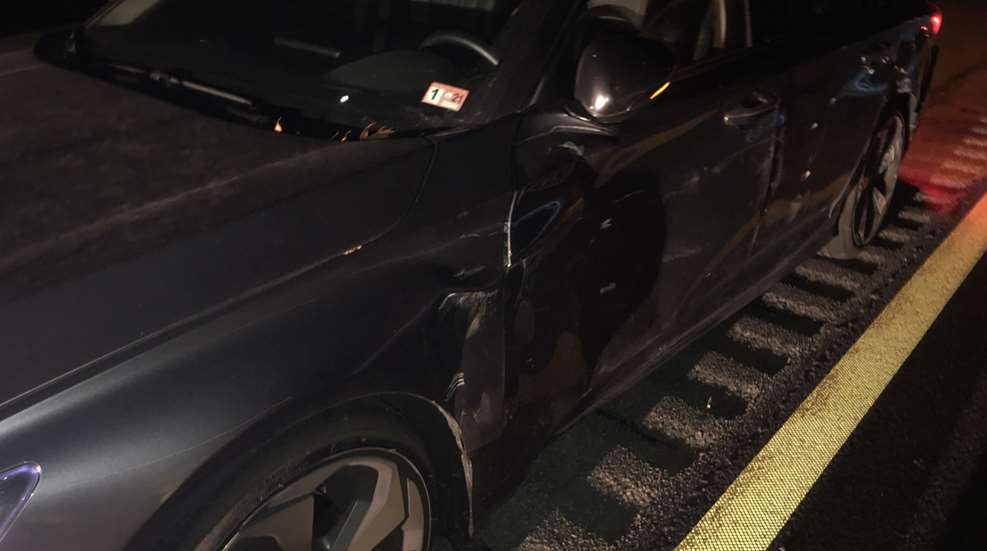
My driver’s side window goes flat steel gray, there is an impact, and I am spinning.
Calculate the rate of spin for a 12’, half-ton car struck at a right angle at 70 miles per hour by a vehicle 20 times its weight. Show your work.
***
One of the most common questions that new and experienced gun owners have isn’t about shooting at all, really; it’s about what an armed citizen might expect after the shot in a defensive shooting. Luckily there is plenty of excellent advice out there addressing what to do in the aftermath of a defensive shooting. However, if you don’t know much about self-defense and the laws that surround the use of lethal force, some of the advice can seem counterintuitive.
Chief among these “huh?” tips is the one about what to do when it’s time to speak to law enforcement in the aftermath of a defensive shooting. Here’s an example from Sheriff Jim Wilson’s After a Defensive Shooting: What to Do:
“Be polite to the interviewing officers, but tell them that you are very upset and stressed out. Tell them that you intend to cooperate with them but that you simply want your attorney present before you make any sort of statement—verbal, written or video.”
***
With a brutal crunch, the car comes to rest. I open my eyes just in time to see the enormous grill of another 18-wheeler fill my field of view. I am facing North in a Southbound lane and there is another semi coming. Someone is screaming.
If a semi truck traveling South at 75 miles per hour leaves New York City while a modest Honda comes to rest against the guardrail in Roanoke, how far will the Honda fly when struck head-on? Show your work.
***
Why on earth would a retired law-enforcement officer like Sheriff Jim advise an armed citizen to keep as quiet as possible in the wake of a defensive shooting? After all, we all agree that as human beings we have the right to defend ourselves against a threat of death or grievous bodily injury. As law-abiding citizens, we tend to feel that we have nothing to hide. Refusing to give a statement until you have a lawyer by your side feels like something a criminal would do, doesn’t it?
First of all, know this all the way down to your bones: It is your inalienable right as a citizen to not speak to the police until you have a lawyer present. It might feel like you’re doing something wrong, but you are not.
Second, know this all the way down to your bones: Should the unthinkable happen, and you are forced to defend your life with a firearm, you will be telling the truth when you tell the police that you’re too upset to make a statement right away. The reason why Sheriff Jim (and everyone else) says it’s important to be quiet in the immediate minutes of a defensive shooting is that it’s not possible for most of us to be rational during that time.
***
No second impact, but the truck passes a whisker from my door, rocking my broken car in its wake. I am in the breakdown lane, pointing in the wrong direction. Where is the truck that hit me? Is anyone stopping? I don’t know, I don’t know, I am trying to unlock my phone to call 911, but my fingers are nerveless and the phone refuses to accept my thumbprint. The screaming is still happening. Oh, that’s me.
If a semi truck traveling at 75 miles per hour hits a car and runs, how fast will the county sheriff need to drive to catch up to it from a standing start 10 minutes after the impact? Show your work.
***
It’s difficult to understand just how much havoc an adrenaline surge wreaks on your ability to be rational until it happens to you. What happened to me was that, when I finally got my phone unlocked and called 911, I then had the privilege of the sort of conversation you want to have with the police. I was unambiguously the victim of a crime, clearly sober and completely uninjured. The officer was competent and calming … and yet I was a worse wreck than my car.
Normally, my visual memory is quite good. Yet I couldn’t tell the officer the license plate number of the truck that hit me, or even what kind of truck it was. I babbled. I stumbled over my words. I backtracked, I second-guessed myself, I said one thing when I meant another. I felt like I was calming down, and then I threw up.
I don’t want to think about how my rattled, scrambled, dizzy speech and behavior could have been used against me in a court of law had the circumstances been different. I do know that the harder I tried to control myself and act like a person who had not just been hit by a truck, the more I acted like a person who had just been hit by a truck.
Although (thank God) I have no personal experience in a real-world defensive shooting scenario, I can imagine that it’s probably much more upsetting than being hit by a truck. Trying to calmly walk a law-enforcement officer through the most upsetting thing that is likely to ever happen to you is like doing algebra in a tornado. That’s why, in the aftermath of a defensive shooting, you should always wait for a lawyer to help you with the "after-math."












